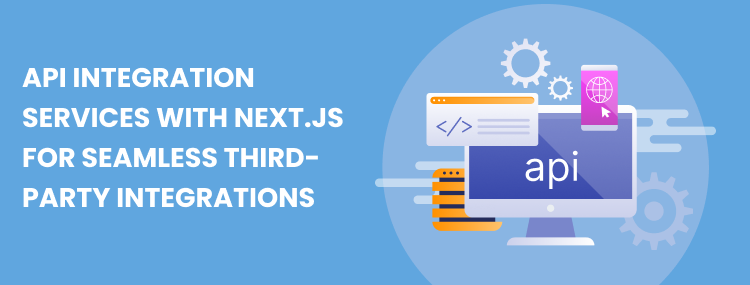In today’s digital landscape, businesses rely heavily on third-party integrations to enhance their websites’ functionality and provide users with a seamless experience. API integration services play a pivotal role in facilitating these integrations. With Next.js, a popular React framework, businesses can leverage powerful tools and features to achieve seamless third-party integrations effortlessly.
Next.js offers a solid foundation for building web applications and provides excellent support for API integration services. By combining the server-side rendering capabilities of Next.js with its API routes, developers can create efficient and scalable integrations with external services.
1. Simplifying Development with Next.js API Routes
Next.js API routes are a game-changer when it comes to building integrations. They allow developers to define serverless API endpoints within their Next.js applications, eliminating the need for a separate backend server. This approach significantly simplifies the development process, reducing complexity and time-to-market.
2. Enhanced Performance with Server-Side Rendering
One of the key benefits of Next.js is its server-side rendering (SSR) capability. By rendering content on the server before sending it to the client, Next.js improves performance and provides better SEO results. When it comes to API integration services, SSR ensures that data from third-party APIs is readily available, reducing latency and delivering a smoother user experience.
3. Handling Authentication and Authorization
Securing third-party integrations is of paramount importance. Next.js offers built-in support for handling authentication and authorization, making it easier to manage user access to external services. With Next.js API integration services, developers can implement various authentication methods, such as OAuth, JWT, or API keys, ensuring secure interactions with third-party APIs.
4. Error Handling and Resilience
API integrations often involve working with external services that may experience downtime or errors. Next.js API integration services provide robust error handling and resilience mechanisms. Developers can implement retry strategies, caching mechanisms, and error handling routines to ensure smooth functioning even in the face of API failures. This helps maintain a consistent user experience and prevents disruptions caused by temporary issues with third-party services.
5. Scalability and Flexibility
Next.js API integration services are highly scalable, allowing businesses to handle increased traffic and growing demands. The framework’s built-in features, such as serverless deployment and automatic code splitting, ensure optimal performance even under high load conditions. Additionally, Next.js provides flexibility in choosing the right tools and libraries for API integrations, empowering developers to select the best solutions that align with their specific requirements.
In conclusion, Next.js API integration services offer a powerful and efficient solution for seamless third-party integrations. With its robust server-side rendering, simplified development process, and built-in support for authentication and error handling, Next.js empowers businesses to create scalable and resilient integrations. By leveraging Next.js API integration services, businesses can enhance their websites’ functionality, improve user experience, and stay ahead in today’s competitive digital landscape.



